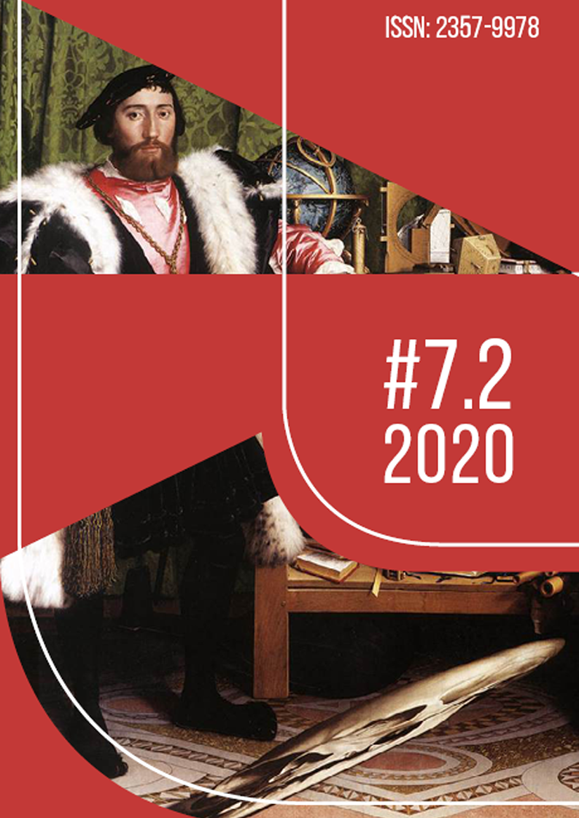Creativity and imagination: research as world making!
DOI:
https://doi.org/10.36025/arj.v7i2.21300Keywords:
Creative research, Imagination in research, Art methodsAbstract
The paper addresses the role of creativity and imagination in research. It challenges the dichotomized view of research, working with oppositional options: qualitative X quantitative or academic X applied, offering a more pragmatic and context-oriented approach. This view is grounded in an epistemology that embraces research as a social practice. The paper presents a research project where methods from the arts are applied as a way to embrace creativity and imagination in research. It concludes that this approach shift research from discovery to generativity. It also moves research away from just hypothesis testing to a focus on local knowledge. Finally, the role of the researcher also shifts from the “power over” to a position of “power with” by virtue of an openness to consideration of whose voices are heard, included, excluded, and so forth.
Publication authorized by Guilford Press, New York.
Downloads
References
ANDERSON, H. Collaborative dialogue based research as everyday practice: Questioning our myths. In: SIMON, G.; CHARD, A. (ed.). Systemic Inquiry: Innovation in Reflexive Practice Research. Farnhill, UK: Everything is Connected Press, 2014. p. 60-73.
BOCHNER, A; RIGGS, N. Practicing narrative inquiry. In: LEAVY, P. (ed.). Handbook of Qualitative Methods. New York: Oxford University Press, 2014. p.195-222.
BODIFORD, K; CAMARGO-BORGES, C. Bridging Research and Practice: Designing Research in Daily Practice. AI Practitioner, 2014.
BROWN, T. Design thinking. Harvard Business Review, 86(6), 84–92, 2008.
BURR, V. Social constructionism. London: Routledge, 2003.
CAMARGO-BORGES, C.; RASERA, E. F. Social constructionism in the context of organization development: Dialogue, imagination, and co-creation as resources of change. Thousand Oaks, CA: Sage, 2013.
CATMULL, E. How Pixar fosters collective creativity. Cambridge, MA: Harvard Business School, 2008.
COOPERRIDER, D.; WHITNEY, D. Appreciative Inquiry: A Positive Revolution in Change. San Francisco, CA: Berrett-Koehler Publishers, 2005.
GERGEN, K. J. (a). An invitation to social construction. Thousand Oaks: Sage. 3rd Edition, 2015.
GERGEN, K. J. Pursuing excellence in qualitative inquiry. Qualitative Psychology, 1(1), 49-60, 2014.
GERGEN, K. J. (b). From mirroring to world-making: Research as future forming. Journal for the Theory of Social Behavior, 45(3), 287–310, 2014.
GERGEN, K. J. (b). From mirroring to world-making: Research as future forming. Journal for the Theory of Social Behavior, 45(3), 287–310, 2015.
GERGEN, K.J.; GERGEN, M. Scanning the Landscape of Narrative Inquiry. Social and Personality Psychology Compass, 4/9: 728–735, 2010.
GERGEN, M.; GERGEN, K. Qualitative inquiry: Tensions and transformations. In: DENZIN, N.; LINCOLN, Y. (ed.). Handbook of Qualitative Research, 2nd Edition. 2000. p. 1025-1046.
GERON, J.; REASON, P. A participatory inquiry paradigm. Qualitative Inquiry, 3(3), 274–294, 1997.
GRIEBLING, S; VAUGHN, L.; HOWELL, B.; RAMSTETTERR, C.; DOLE, D. From Passive to Active Voice: Using Photography as a Catalyst for Social Action. International Journal of Humanities and Social Science, Vol. 3, No. 2, 2013. [Special Issue – January 2013]
KIMBELL, L. Rethinking design thinking: Part I. Design and Culture, 3(3), 285–306, 2011.
KUHNK, T.S. The structure of scientific revolutions. 2nd ed. Rev. Chicago: University of Chicago Press, 1970.
LEABY, P. Method meets art: Arts-based research practice. New York: Guilford Press, 2015.
MARION, R. Leadership of Creativity: Entity-Based, Relational, and Complexity Perspectives. In: MUMFORD, M. (ed.). Handbook of Organizational Creativity. Elsevier, 2011. p. 457-482.
McNAMEE, S. Research as Social Construction: Transformative Inquiry. Health and Social Change, Vol. 1, n. 1, p. 9-19, 2010.
McNAMEE, S. Social construction as practical theory: Lessons for practice and reflection in psychotherapy. In: PARÉ, D. A.; LARNER, G. (ed.). Collaborative practice in psychology and therapy. Binghamton, NY: Haworth Press, 2004. p. 9–39.
McNAMEE, S.; HOSKING, D.M. Inquiry as Engaged Unfolding. In: McNAMEE, S.; HOSKING, D.M. Research and Social Change: A Relational Constructionist Approach, New York: Routledge, 2012. p. 63-86.
MOHRMAN, S. A.; GIBSON, C. B.; MOHRMAN, A. M. Doing research that is useful to practice a model and empirical exploration. Academy of Management Journal, 44(2), 357–375, 2001.
MONTUORI, A. Beyond postmodern times: the future of creativity and the creativity of the future. Futures, Elsevier Publisher, 43, 221-227, 2011.
MONTUORI, A. Literature review as creative inquiry. Reframing scholarship as a creative process. Journal of Transformative Education. V.3, N.4, Oct. 2005.
MONTUORI, A. The quest for a new education: From oppositional identities to creative inquiry. ReVision, 28(3), 4-20, 2006.
NIJS, D. E. The complexity-inspired design approach of Imagineering. World Futures, 71(1–2), 8–25, 2015.
PARÉ, D.; LARNER, G. (ed.). Collaborative practices in psychology and therapy. Binghamton, NY: Haworth Press, 2004.
ROMME, A. G. L. Making a difference: Organization as design. Organization Science, 14, 558–573, 2003.
RYNES, S. L.; BARTUNEK, J. M.; DAFT, R. L. Across the great divide: Knowledge creation and transfer between practitioners and academics. Academy of Management Journal, 44(2), 340–355, 2001.
SHAWVER, L. How the West became postmodern: A three part story. In: SHAWVER, L. Nostalgic postmodernism: Postmodern therapy. Oakland, CA: Paralogic Press, 2005. p. 34–67.
VAN AKEN, J. E. Management research based on the paradigm of the design sciences: The quest for field- tested and grounded technological rules. Journal of Management Studies, 41, 219–246, 2004.
WATKINS, J. M.; MOHR, B. J.; KELLY, R. Appreciative inquiry: Change at the speed of imagination (Vol. 35). Hoboken, NJ: Wiley, 2011.
WHITNEY, D.; COOPERRIDER, D.; GARRISON, M.; MOORE, J.; DINGA, L. Appreciative inquiry and culture change at GTE/Verizon. Appreciative Inquiry Commons, 1996. Retrieved from https://appreciativeinquiry.case.edu/intro/bestcasesDetail.cfm?coid=2880.
WHITNEY, D.; TROSTEN-BLOOM, A. The power of appreciative inquiry: A practical guide to positive change (2nd ed.). Brunswick, OH: Berrett- Koehler, 2010.
WOOLGAR, S. Psychology, qualitative methods and the ideas of science. In: RICHARDSON, J. T. E. (ed.). Handbook of qualitative research methods for psychology and the social sciences. Leicester, UK: BPS Books, 1996. p. 11–25.
Downloads
Published
How to Cite
Issue
Section
License
Copyright (c) 2020 Celiane Camargo-Borges (Autor)

This work is licensed under a Creative Commons Attribution-NonCommercial-ShareAlike 4.0 International License.

This work is licensed under a Attribution-NonCommercial-ShareAlike 4.0 International (CC BY-NC-SA 4.0) License.
Authors retain copyright, while licensing their work under a Attribution-NonCommercial-ShareAlike 4.0 International (CC BY-NC-SA 4.0) License.


 English
English Português (Brasil)
Português (Brasil)
